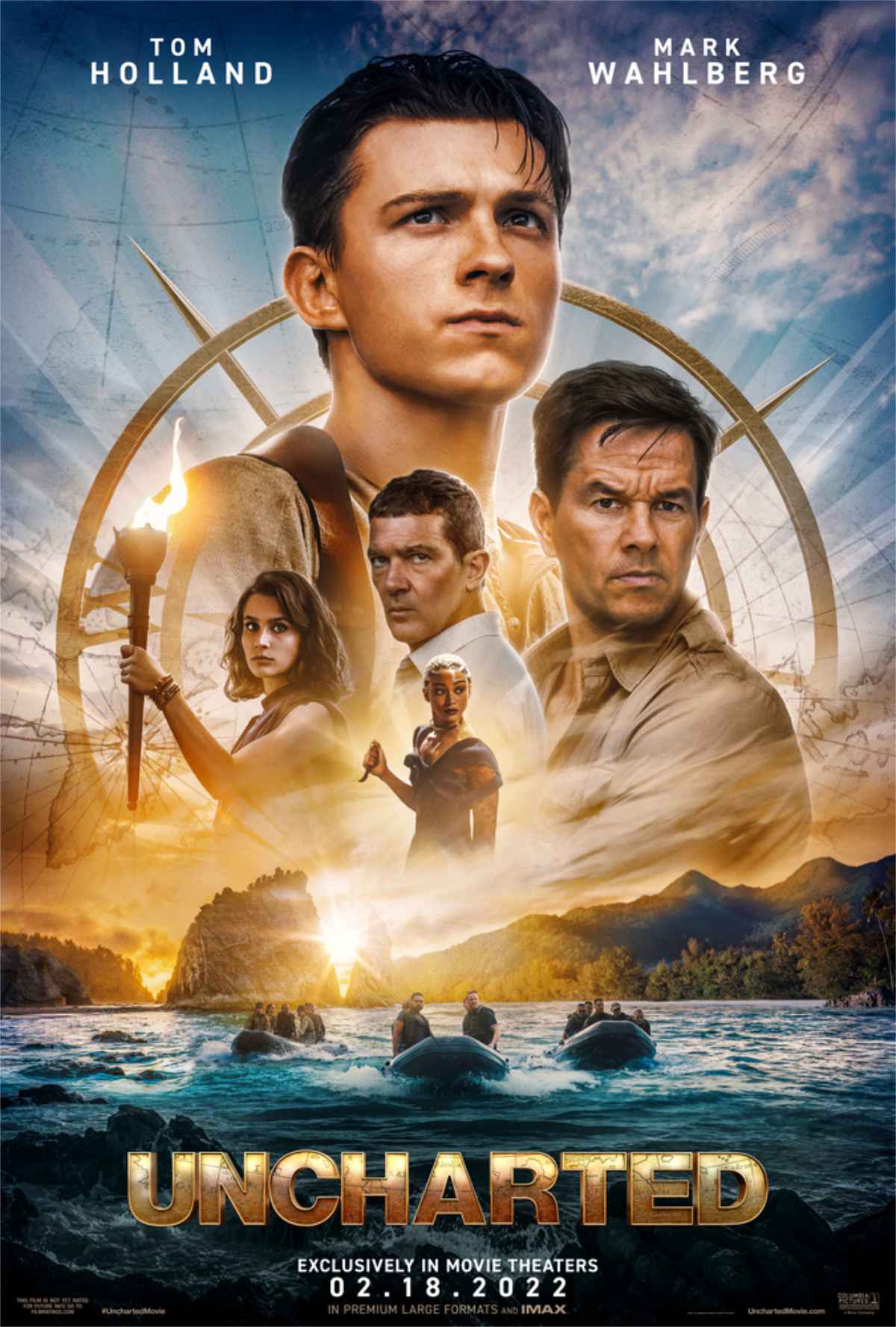Uncharted Review
“Sometimes what doesn’t kill you doesn’t make you stronger. Sometimes, it just should have killed you.” Will Ferrell wrote that eleven years ago, and while it was about President George W. Bush at the time, they may as well have been Uncharted, which started its long, tortuous assent to the big screen at the same time.
In theory, a film spends that long in development hell as it gets refined into something good enough to make it to the big screen. Just as often, though, the dying movie turns into a zombie-like Uncharted, limping along until it whatever has been stopping it gives up and it makes its way back to the land of the living when what it really needs is a bullet in the head.
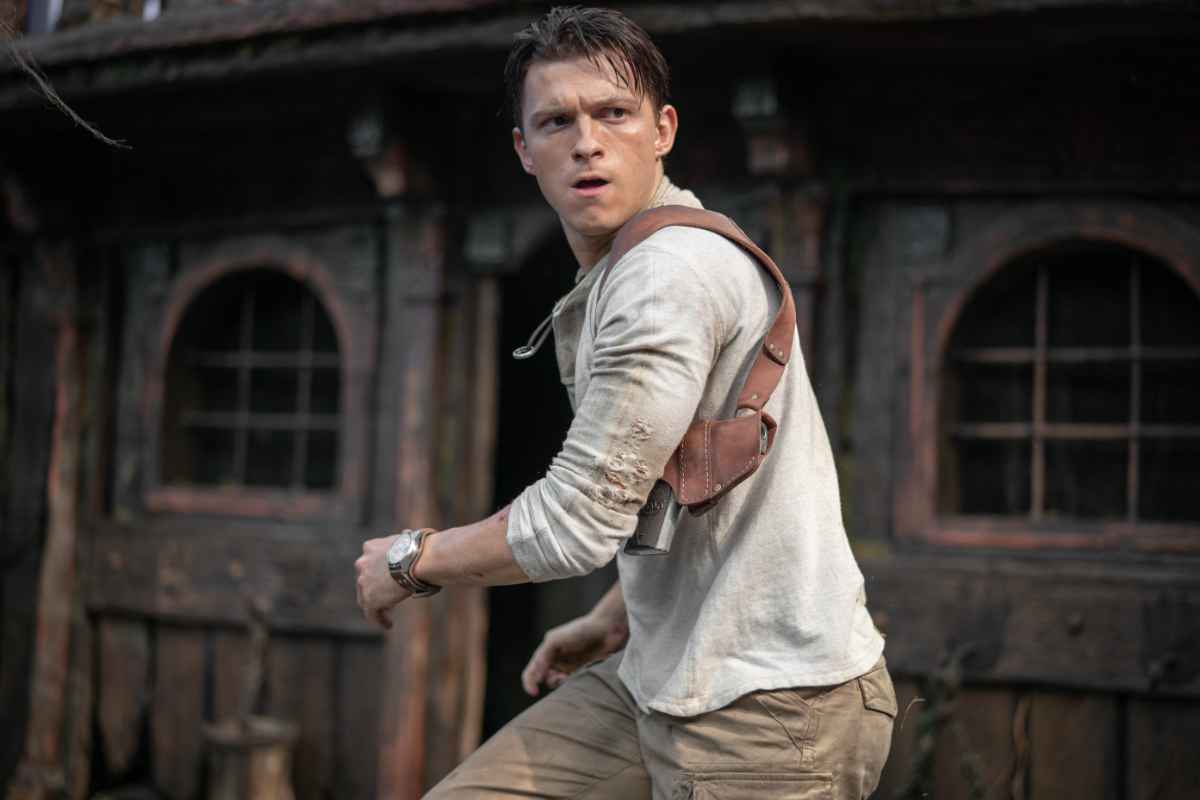
Following in the path of the popular PlayStation game, Uncharted introduces us to young Nathan Drake (Tom Holland), theoretically a descendant of the famed explorer Francis Drake who wants to follow in his ancestor’s footsteps for the same reasons… ill-gotten gains.
When a mysterious stranger (Mark Wahlberg) offers him the chance to do just that and, even better, meet back up with his long-lost brother Sam, Nathan can’t say no even though he should.
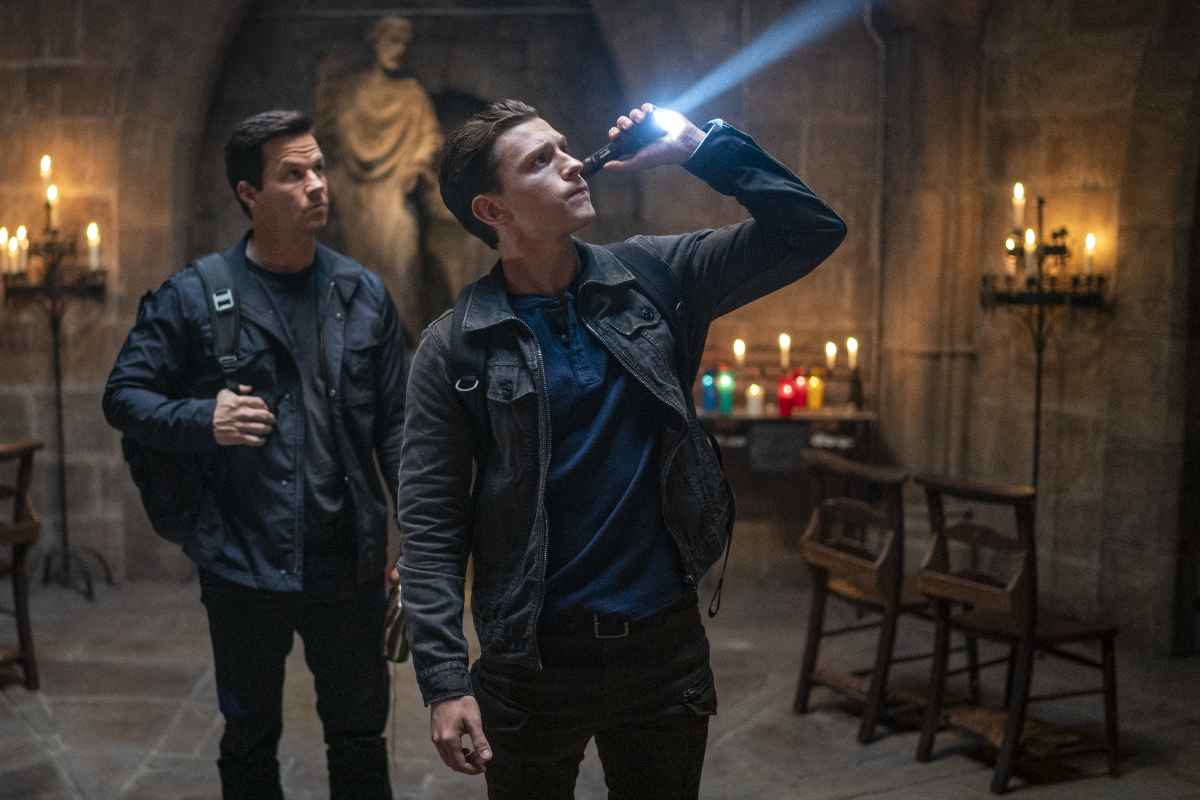
Before long, he is being chased through the sewers of Barcelona by a knife-wielding maniac (Tati Gabrielle) and an obsessed billionaire (Antonio Banderas) trying to figure out both how he got there and the clues that will lead him to the treasure of a lifetime.
Uncharted the film, like Uncharted the game, wears its influences on its sleeve without shame… bits of Indiana Jones, bits of National Treasure, and even a little bit of Super Mario Bros.
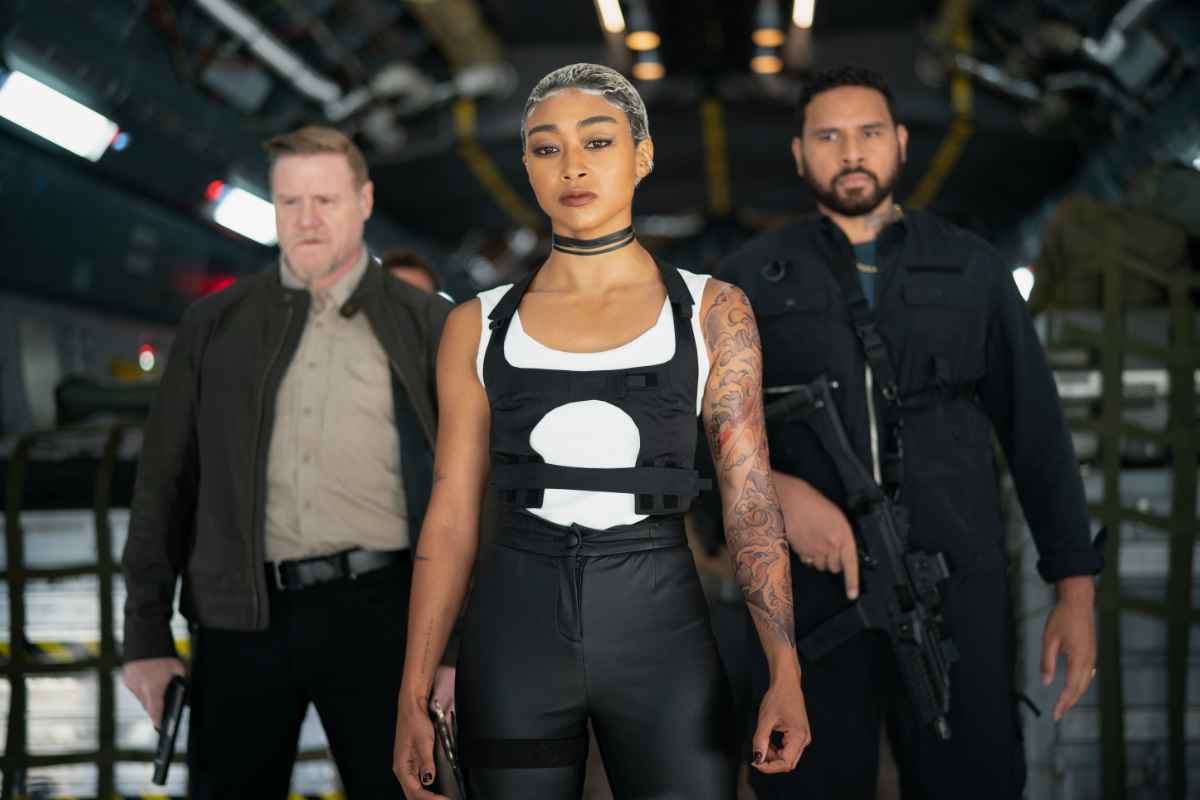
While Nathan Drake has become an iconic character in the world of video games, that is also a world where, by definition, protagonists are built to encapsulate their players either by being completely anonymous or a cornucopia of popular tropes rather than actual characters.
What’s left, once the cameras roll, is the shell of a person animated by the charisma of whoever is inhabiting it and hoping that is enough.
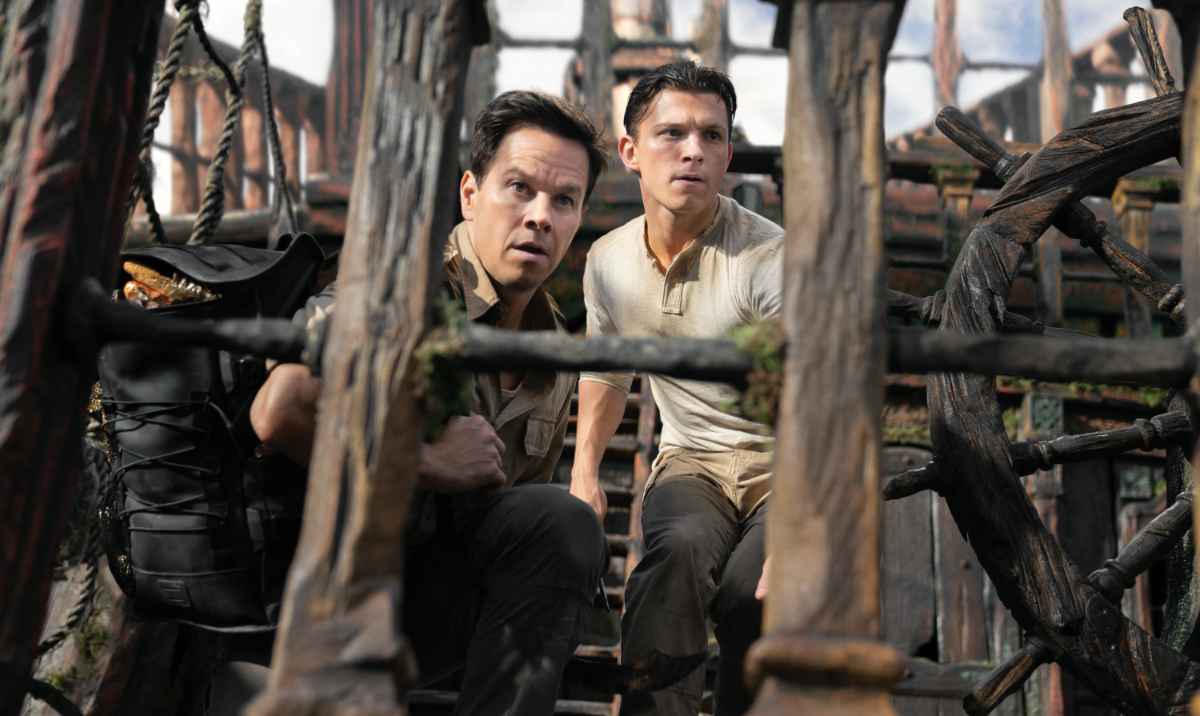
Holland is an excellent Spider-Man but doesn’t fit as easily into a world of ne’er-do-wells, con artists, or cutthroats which, requires more believability as a weathered, experienced man of the world than this version of Nathan Drake (or his actor) can manage.
In place of that, director Ruben Fleischer (Venom) and his writers offer up quips, quips, and more quips, trying to manufacture screen chemistry out of thin air between Nathan and his allies Sully and Chloe (Sophia Ali). Everyone works really hard at it, but without much to offer between the surface version of character interaction and various screen puzzles, it tends to fall flat.
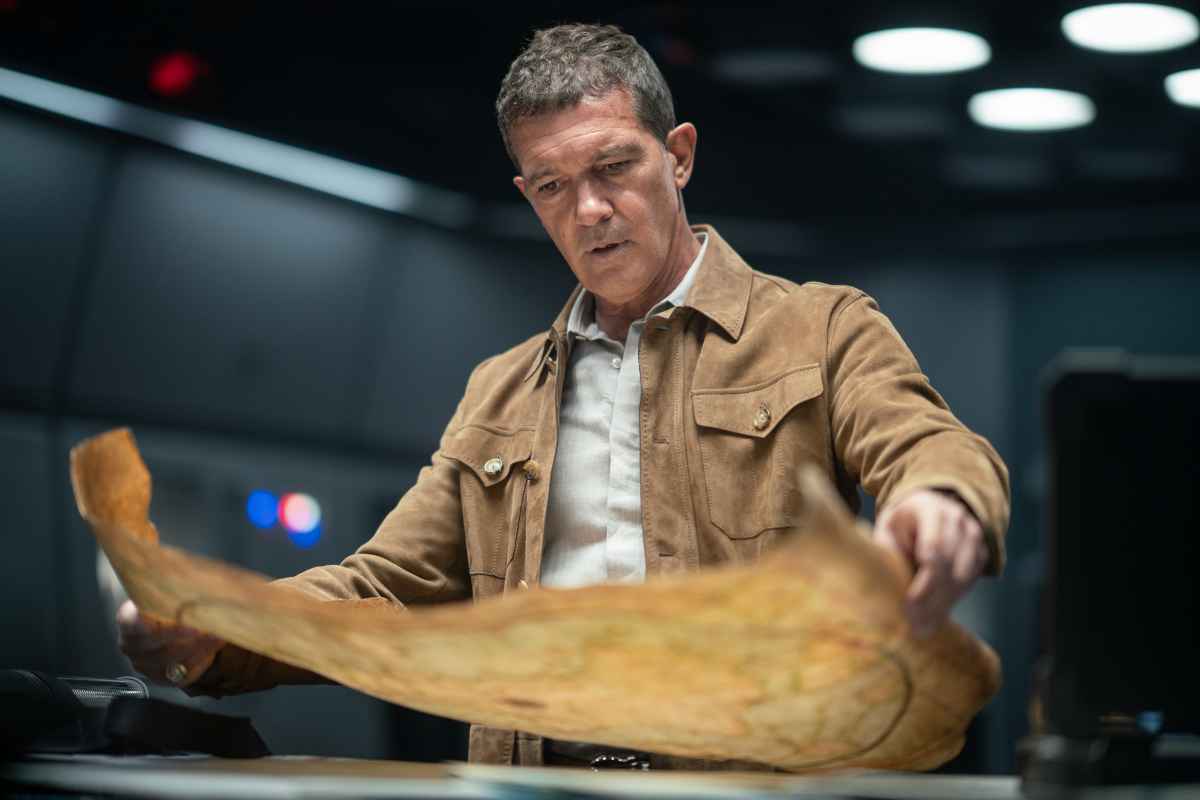
And like the characters, the puzzles aren’t well integrated into Uncharted, making all of the artificiality even more noticeable.
Rather than lead logically from one set piece to the next, they come across as entirely reverse-engineered, starting with the endpoint and the decision that a clue needs to point to that destination, whether it makes sense or not. As long as it’s there, that’s all that matters.
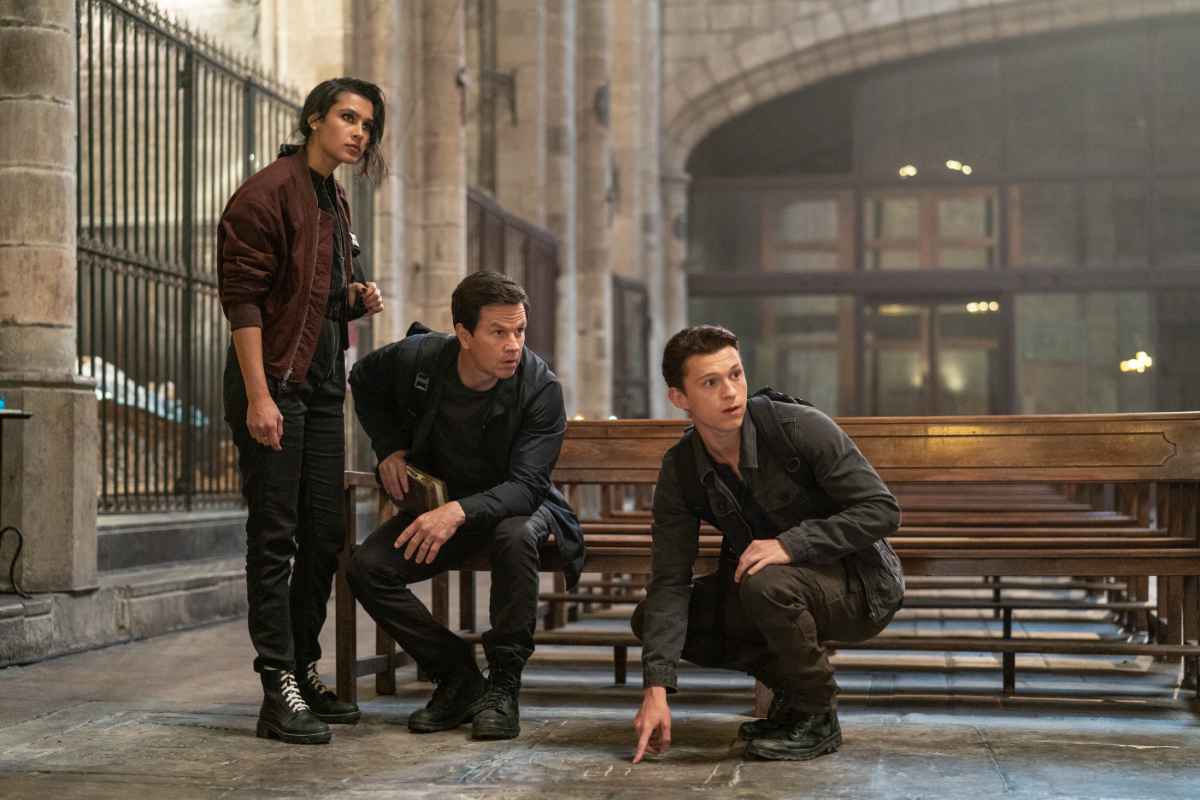
And that’s pretty much how you can describe Uncharted. It’s there. The actors are all good at what they do, the set pieces are decently put together and very over the top, and there’s a decent bit of humor tying it all together.
And not for one minute will you believe any of it, not from the intentional unreality of big-budget Hollywood but the complete lack of anything else. Uncharted isn’t awful, sometimes it’s even fun. But it is kind of soulless, and that’s how you’re likely to feel coming out of it.
UNCHARTED REVIEW SCORE: 5 OUT OF 10
